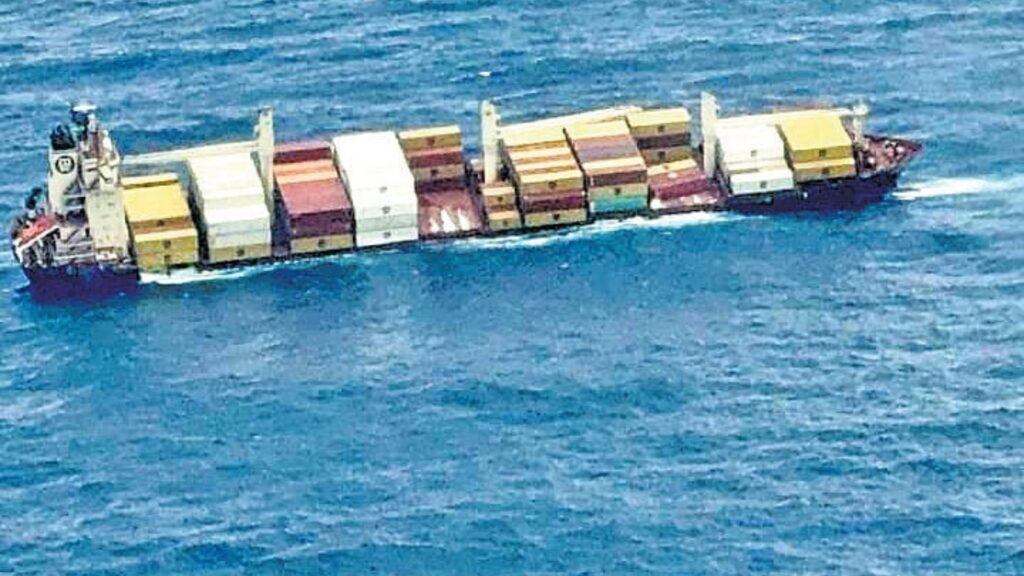The sinking of the cargo ship MSC Elsa 3 off the coast of Alappuzha has triggered widespread concern among coastal communities, particularly in Ernakulam, where fishermen, residents, and boat operators are grappling with disruptions to their daily lives and growing fears of environmental damage.
Fishing activities along the coast have come to a near halt as containers and debris from the sunken vessel wash ashore. Fishermen say the situation has created what they call an “undeclared ban” on fishing, more severe and indefinite than the annual monsoon-related restrictions.
“The sea was just starting to show signs of recovery, and we were expecting a good sardine season. Now, this tragedy has put everything on hold,” said Philip, a fisherman from Vypeen. “We’ve already been facing challenges like dwindling fish stocks and lack of government support. This disaster is another heavy blow.”
Coastal residents are also voicing concerns over the environmental risks posed by the accident. Several containers from the vessel are believed to contain hazardous substances, including calcium carbide—a chemical known to be highly reactive when exposed to water. Local leaders warn that any leakage could have dire consequences for marine life and fragile ecosystems.
Charles George, state president of the Kerala Matsya Thozhilali Aikyavedi under the Trade Union Centre of India (TUCI), emphasized the long-term impact on the livelihoods of coastal communities. “Lakhs of people depend on the sea for their survival. If these hazardous materials contaminate the water, it will affect not just fishing but also tourism and coastal health,” he said. “There needs to be a thorough investigation. Why were such dangerous containers bound for Kochi in the first place?”
Environmentalists and community leaders are now urging the state and central governments to take swift action, including cleanup efforts, compensation packages for affected communities, and stricter regulations on cargo carrying hazardous materials.
As coastal residents anxiously monitor the shoreline for further debris, their message is clear: this is not just a maritime accident—it’s a crisis with far-reaching social, economic, and environmental implications.

